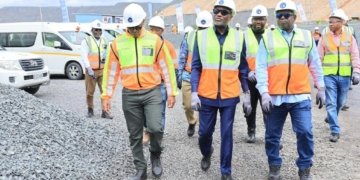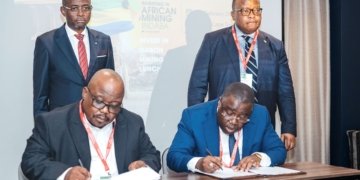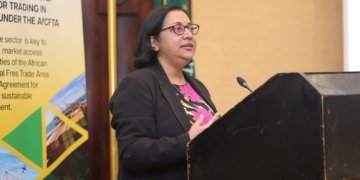LUANDA, Angola (BG) – The Sanha Lean Gas Connection project in Angola’s Benguela province has begun producing gas, marking a significant milestone in the country’s energy diversification efforts, according to a statement from the African Energy Chamber (AEC) on Tuesday.
The project represents Angola’s strides toward reducing its reliance on oil and strengthening energy security.
The initiative also aligns with the government’s push to alleviate energy poverty and create economic opportunities across the gas value chain.
The project, led by Chevron’s Angolan subsidiary, Cabinda Gulf Oil Company, supplies natural gas from Block 0 to Soyo power plants and the Angola Liquefied Natural Gas (LNG) facility.
“The milestone achieved by the company and its partners on Block 0 should be commended, serving as a critical step towards economic diversification and enhanced energy security in Angola,” said NJ Ayuk, Executive Chairman of the AEC.
The Sanha Lean Gas Connection project is designed to deliver 80 million standard cubic feet per day (mmscf/d) of gas in its initial phase, with plans to ramp up production to 300 mmscf/d by integrating the Booster Compression module. It will increase Chevron’s feedstock supply to Angola LNG to 600 mmscf/d.
The project is part of broader efforts to develop Angola’s natural gas sector. The government’s forthcoming Gas Master Plan, under public consultation since October 2024, outlines strategies to expand the share of gas in Angola’s energy mix to 25% by 2025.
With additional projects like the Quiluma and Maboqueiro gas fields in progress, Angola is positioning itself as a regional energy hub, balancing the global demand for cleaner energy while supporting its economic growth.
“Natural gas is the fuel of the future in Africa,” Ayuk said.
According to the International Energy Agency (IEA), Africa, with its significant natural gas reserves, is emerging as a global leader in sustainable energy. The continent is strategically positioned to meet the rising global demand for cleaner energy solutions.
Strategic investments in gas infrastructure and value chains are reducing energy poverty across Africa and enabling the region to export surplus energy to international markets.
Projects like Angola’s gas initiatives exemplify efforts to align with global sustainability goals, further solidifying Africa’s role in the energy transition.
These developments underscore Africa’s potential to become a key player in the global push for greener and more sustainable energy solutions.





















